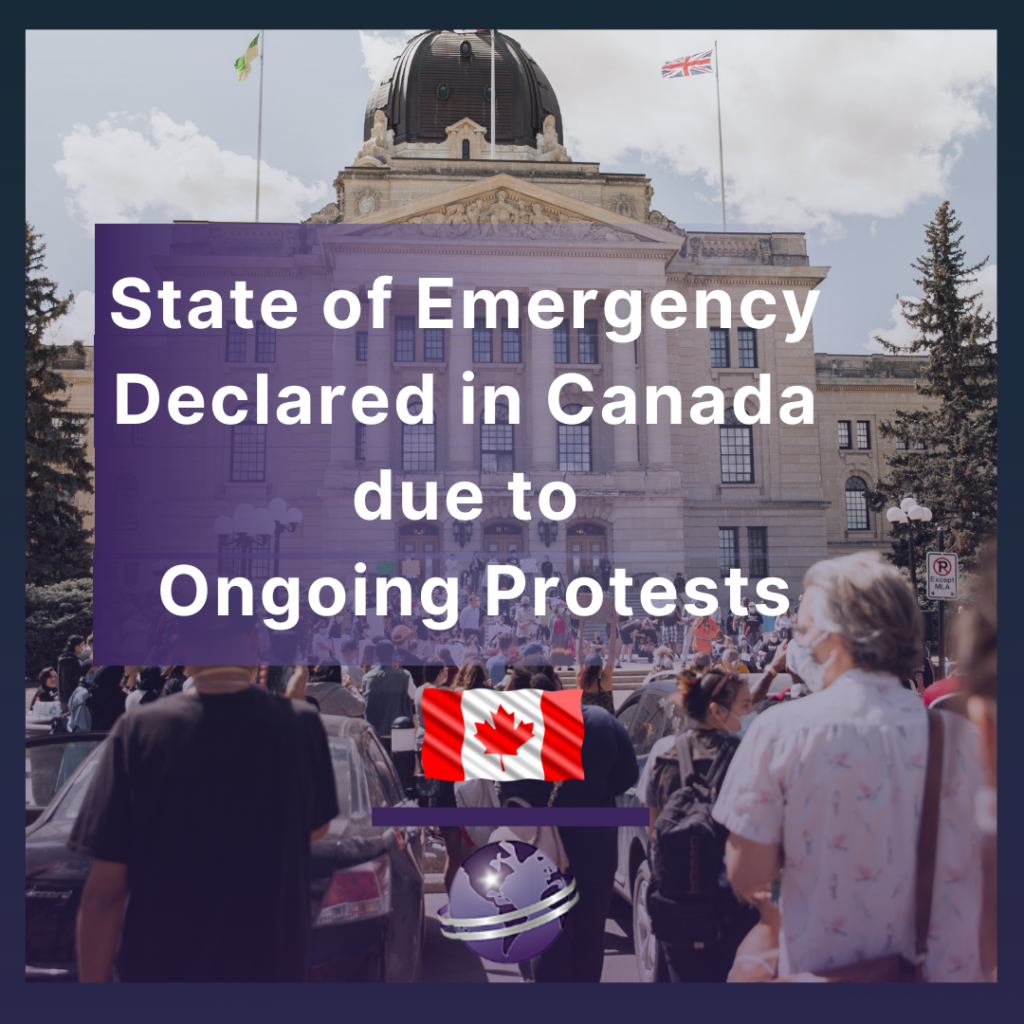
On February 14th, 2022, Canada’s Prime Minister, The Right Honourable Justin Trudeau, declared a state of emergency over Protests at the US-Canadian Border in Ottawa. The Protests were initiated after Canada established stricter COVID-19 measures and restrictions. Since this is first time that the Canadian Government has enacted the Emergencies Ac[1]t, several specific enumerated powers are being applied. Of these powers, six significant effects will be felt:
- It prohibits individuals from participating in public assemblies that breach the peace – particularly at the U.S.-Canadian border in Ottawa.
- It indicates areas where blockades are prohibited and regulates the use of such property, such as ports and border crossings.
- It orders tow trucks to remove vehicles that are blocking roads.
- It authorizes financial institutions to freeze and suspend economic efforts to fund the protests without a court order.
- It grants the federal police force to enforce municipal and provincial laws.
- It punishes those who breach any of the above with fines upwards of $5,000 or imprisonment for a maximum of five years.
The Emergencies Act is not currently causing any delays in U.S.-Canadian border travel, nor does it instill any additional measures to those already in effect. However, if conditions worsen, the Prime Minister could instill armed forces at the border. If so, significant delays in travel at the Canada-U.S. borders will most likely occur. Nonetheless, PM Trudeau has repeatedly stated that he has no intention of impacting authorized travel, but rather that the decision is a measure of last resort; thus, trying to reassure Canadian citizens that no delays in travel should occur; what will happen in practice remains to be seen.
Notably, no additional restrictions or measures have yet been enforced through the powers invoked by the Emergencies Act that we expect could directly hinder the U.S. Visa petition process or the ability to travel to the U.S. once granted a Visa, for example, at one of the U.S. Consulates in Canada. Nonetheless, additional changes or barriers may later be implemented without advance notice. Therefore, it is prudent to promptly speak to an experienced immigration attorney to determine how to proceed.
To explore your travel and visa options and more, please contact us by email at investingacrossborders1@gmail.com or by phone at 1-866-724-0085
e-Council Inc.’s website, newsletter, and other forms of communication contain general information about legal matters. The information is not legal advice and should not be treated as such. You must not rely on the information on this website as an alternative to legal advice from an attorney or other professional legal services provider. Please consult with an attorney or other professional services provider for specific questions about any legal matter.
[1] The Emergencies Act is a law passed by the Parliament of Canada in 1988 which authorizes the federal government to take extraordinary temporary measures to respond to public welfare emergencies, public order emergencies, international emergencies and war emergencies.
